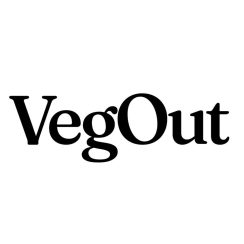The non-dairy milk brand challenged the dairy industry's climate impact at a Capitol Hill event, advocating for transparent climate labeling on food packaging.
In an audacious move, Oatly, the world’s largest oat milk company, made waves by crashing The International Dairy Foods Association’s 40th Annual Capitol Hill Ice Cream Party in Washington, D.C. Their mission? To park a plant-based soft serve ice cream truck, dubbed the “Dairy Deprogramming Zone,” directly across the street from the event, sparking a broader conversation about the climate crisis and the dairy lobby’s role in it.
The Reason Behind “Dairy Deprogramming”
Why target ice cream and push for “dairy deprogramming?" For decades, the dairy lobby, heavily supported by our government, has promoted products that clash with climate goals. From 2016 to 2022, the Dairy Checkoff program in the US spent $1.6 billion on marketing dairy products. This aggressive promotion often overshadows the environmental impacts of dairy consumption, despite clear scientific evidence urging a reduction.
The Environmental Impact of Dairy
Switching from cow’s milk to non-dairy alternatives like Oatly can significantly reduce our climate footprints. Oatly’s oat milk has about half the climate impact of comparable cow’s milk and uses nearly 80% less water. In contrast, the production of one gallon of milk in the US requires 144 gallons of water, with more than 93% used to grow feed for dairy cattle.
Furthermore, meat and dairy emissions account for one-third of anthropogenic methane emissions, a greenhouse gas with 80 times the global warming potential of CO2 over 20 years. Reducing emissions from industrial livestock is crucial to meet the goal of reducing global greenhouse gas emissions by 45% by 2030.
A Call for Transparency
Pearson Croney-Clark, Oatly’s Public Affairs Manager, highlighted the urgency of addressing the dairy industry’s climate impact. She stated, “We showed up on Capitol Hill to expose the decades-long influence by Big Dairy on our government and in turn, the American people. The negative impacts of the dairy industry on our climate are significant and can’t be ignored. Science clearly shows that to achieve the greenhouse gas reduction targets set by the Paris Climate Agreement and President Biden’s commitment to the Global Methane Pledge, consumption of industrially produced meat and dairy must decline. Moving away from meat and dairy is one of the easiest ways Americans can lower their climate footprints, but because the dairy lobby is not transparent about the impacts of their products, many people don’t understand the true role that the industry plays in our climate crisis. Oatly’s Original Oatmilk has a 49% lower climate impact than comparable cow’s milk—that’s nearly HALF the impact. We put our climate footprint number right on the front of our packaging and we’re calling on dairy companies as well as all other food companies to do the same. This would allow Americans to make educated and informed decisions about the impact of their food choices. We must shift our food system now to protect the health of our planet and everyone on it. Through our Dairy Deprogramming effort today and our call for climate labeling on food packaging, we’re working to give Americans the transparency they deserve.”
Shifting Our Food System
Oatly’s Dairy Deprogramming effort aims to empower Americans with the transparency they deserve, urging a shift in the food system to protect our planet. By raising awareness and advocating for clear climate labeling, Oatly hopes to inspire a collective move toward sustainable food choices, essential for achieving global climate targets.
For more information on Oatly, visit Oatly.com.
If You Were a Healing Herb, Which Would You Be?
Each herb holds a unique kind of magic — soothing, awakening, grounding, or clarifying.
This 9-question quiz reveals the healing plant that mirrors your energy right now and what it says about your natural rhythm.
✨ Instant results. Deeply insightful.














